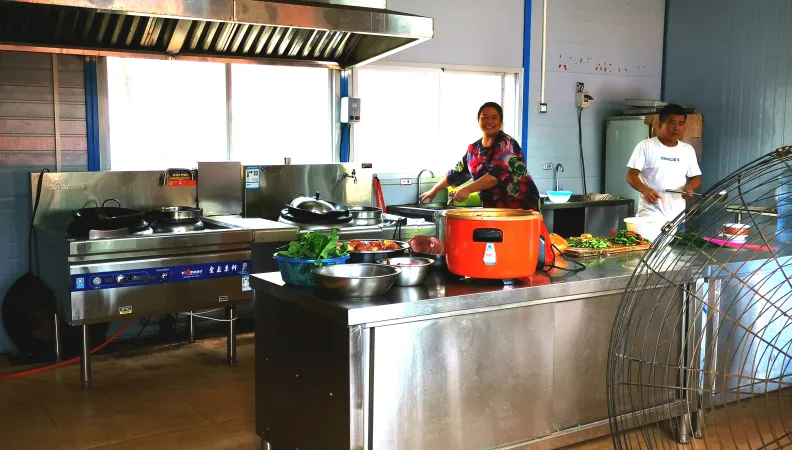Share the page
Energy recovery from restaurant food waste in Shaoyang
Project


-
Project start date
-
Status
Ongoing
-
Project duration
-
20 ans
-
AFD financing amount
-
€ 25 000 000
-
Country and region
-
Location
-
Shaoyang
-
Type of financing
-
Beneficiaries
-
Shaoyang Environmental Sanitation Infrastructure Construction Co. Ltd (SESIC)
Managing increasing volumes of restaurant food waste has become a major challenge in China. In Shaoyang, AFD is supporting a project that will improve public collection and treatment services for this waste and enable it to be recovered for energy–an exemplary circular economy project.
Context
The rise in living standards in China has led to rapid growth in the restaurant sector. However, restaurant food waste is often collected informally and is primarily used to feed swine. Used cooking oils are often collected to be reprocessed before being resold to restaurants. These informal practices are both prohibited for public health reasons.
Shaoyang, the second largest conurbation in Hunan, with a population of approximately 8 million inhabitants, has set out to address this problem by establishing a restaurant waste management and energy recovery system.
Description
This project, supported by AFD, is establishing a collection, computer tracking and transfer system for restaurant waste from the districts and counties involved in the project to the treatment site. A waste treatment plant will be built and will use the anaerobic digestion process.
The project also includes energy recovery from biogas obtained from this treatment process and from an adjacent landfill. A system will be installed to capture and generate both electricity and heat.
The fats recovered during the treatment process will be used to produce biodiesel.
Impacts
-
Improve the quality of urban services in the city of Shaoyang;
-
Economic development of waste treatment by-products;
-
Reduction of health risks linked to the informal collection and use of food waste;
-
Reduction of greenhouse gas emissions by 70,000 tons of CO2 per year through energy recovery from waste treated at the plant and the recovered biogas.


